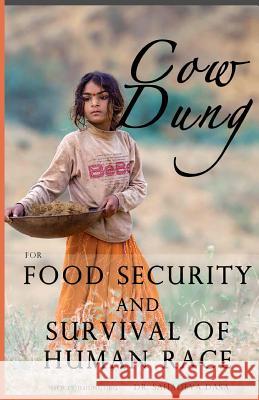Cow Dung For Food Security And Survival of Human Race » książka
Cow Dung For Food Security And Survival of Human Race
ISBN-13: 9789382947127 / Angielski / Miękka / 2014 / 224 str.
We have taken our food for granted and most of us have no idea where it comes from. Jennifer Hill from Bristol recalls, "Several years ago I took my daughter and her friend to our allotments. As we left I dug up a couple of bunches of my prized organic carrots and offered one of them to my daughter's friend.With a look of absolute disgust the young girl said, 'My mommy doesn't get food from the dirt She goes to Tescos ' Still, at least she knew what a carrot was." Ask any child where their food comes from, and the chances are he or she will say the supermarket. And most adults don't know a lot more about how food ends up on their plate either. Civilization survives on an ample supply of food and all previous civilizations developed near a food source. When farm productivity declined, usually as a result of soil mismanagement, civilizations also declined - and occasionally vanished entirely. Today, all over the world, more than seven and a half million acres of soil has been degraded. That's larger than the U.S. and Canada combined. What remains is ailing as a result of compaction, erosion and salination making it near impossible to plant and adding to greenhouse gases and air pollution. Soil degradation is putting the future of the global population is at risk according to a National Geographic article by Charles Mann. Civil unrest in Latin America, Asia and Africa have been attributed to a lack of food and affordable food as a result of poor soil. Any layman can understand the vital importance of topsoil as a rare and non-renewable resource which sustains all life on the planet. It is considered non-renewable because it takes centuries, if not millenniums to form one centimeter of top soil whereas it can be squandered in a matter of few decades. We are trying to fool nature, forgetting that nature can not be fooled. Willian Lines warns, "For, although people can be fooled, tricked, and beguiled, nature can not. Material reality resists importuning, finessing, or re-negotiation. Nature's machinery is invariant, not subject to legislation or cultural conditioning. It can not be compromised." We need to heed the warning and solutions presented in this book if we are at all serious about turning these trends around and building a safer, sustainable future.











